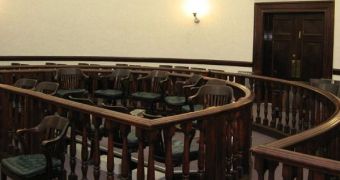The human mind does indeed work in mysterious ways, psychologists say, and not always for the best. For instance, eyewitnesses cited to testify in a court of law may get easily confused as to what happened in the situation they saw, and are very likely to second-guess themselves while speaking before a jury. This is a very dangerous thing to do, because, often, another human being's fate hangs in the balance, and the rest of his or her life depends on the correct testimony of a single man or woman.
Researchers from the Iowa State University, the Tufts University, and the Rhode Island College managed to demonstrate that third-party accounts can easily influence the memory eyewitnesses have of an event. For instance, if they believe that the perpetrator had an orange blouse, but shortly after the incident they hear rumors that the crook had a blue shirt, then they are very likely to testify in court that a man or woman wearing blue is responsible for that specific crime.
And the study shows that they don't do this on purpose, but simply their minds mix up real facts with lies they heard while not paying attention. The subconscious mind records them however, and merges the fake data with actual information. On the other hand, if people are debriefed shortly after an event, they are very likely to remember everything accurately and to make no mistakes in the ways they present what they saw.
This type of mix-up is very obvious in situations where multiple people witnessed something – they are very likely to stick to the same background story, but accounts of the details can vary significantly from one another, depending on other influences they were subjected to in the meantime. The interesting finds were published in the Association for Psychological Science's journal Psychological Science.
In addition, the researchers added that newly-recalled information is very likely to be subjected to distortion, as proven by the tests the team conducted on people watching an episode from a TV show. After viewing the show, and taking a memory recall test immediately after, they played a game and were then fed erroneous data about the show. The second memory test proved that the participants were very likely to express the false data as being true, without even realizing it.

 14 DAY TRIAL //
14 DAY TRIAL //